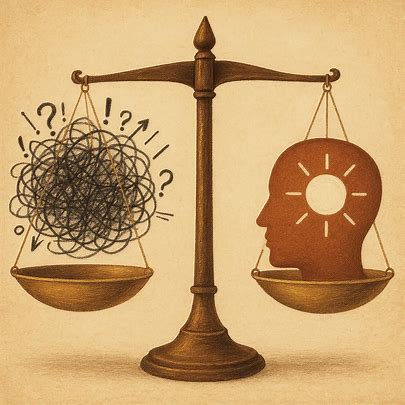Introduction
Judges hold one of the most demanding and high-responsibility roles in society. Each of their decisions affects lives, families, and communities, requiring unwavering commitment to justice, fairness, and impartiality. However, this honorable position often comes with immense mental and emotional burdens. Constant high-stakes cases, public scrutiny, and professional isolation contribute to stress, fatigue, and decision fatigue.
Cognitive Hypnotic Psychotherapy (CHP) offers a holistic approach to helping judges manage these challenges. By integrating hypnosis, cognitive restructuring, Neuro Linguistic Programming (NLP), mindfulness, and psychodynamic methods, CHP supports judges in maintaining mental clarity, emotional resilience, and overall well-being and reduce judge stress.
Core Challenges Faced by Judges
High Stress and Emotional Burden
Judges regularly encounter traumatic cases such as violent crimes, custody disputes, and criminal trials. Exposure to such emotionally charged material can lead to secondary trauma, compassion fatigue, and chronic stress, which can undermine their mental health and decision-making ability.
Decision-Making Pressure
The pressure of making flawless decisions quickly can lead to decision fatigue and anxiety. The belief that mistakes are unacceptable often heightens this stress, negatively impacting judgment.
Isolation and Professional Detachment
Maintaining impartiality often means limiting social interactions that may affect perceived neutrality. This professional isolation can leave judges feeling lonely and emotionally unsupported.
Public Scrutiny and Accountability
Judicial decisions are frequently subject to media and public analysis. Negative feedback may increase judges’ anxiety, self-doubt, and fear of reputational harm.
Work-Life Imbalance
Heavy caseloads, extensive hearings, and documentation demands stretch judges’ working hours, often encroaching upon personal and family time, leading to burnout.

How Cognitive Hypnotic Psychotherapy Helps Judges
CHP combines several therapeutic strategies to equip judges with tools for emotional regulation, stress management, and improved decision-making.
Hypnotic Relaxation and Stress Decompression
Guided hypnosis sessions help judges let go of accumulated tension and renew mental energy and reduce judge stress.
Visualization and Safe Mental Courtroom
Judges use visualization techniques to create a controlled, calm internal environment where they can process cases without emotional overwhelm, reducing secondary trauma.
Sensory Dissociation Techniques
These help judges emotionally step back from distressing testimonies while maintaining professional empathy.
Cognitive Belief Restructuring
CHP challenges unhelpful thoughts such as “I must never make mistakes” and replaces them with balanced beliefs like “I strive for fairness and due diligence.”
NLP Reframing
By shifting the view of challenging cases from threats to responsibilities, judges develop healthier mental perspectives.
Future Pacing with Hypnosis
This technique helps judges mentally rehearse handling difficult future decisions calmly and clearly.
NLP Anchoring
Judges learn to trigger calmness on demand, especially prior to high-pressure hearings.
Mindfulness and Breathwork
Consistent mindfulness practices ground judges in the present moment, preventing emotional carryover between cases.
Ego-Strengthening Hypnosis
Hypnotic suggestions reinforce emotional neutrality and inner balance, enhancing judges’ resilience under scrutiny.
Dealing with Professional Isolation
Hypnotic Storytelling and Resilience Metaphors
Judges benefit from metaphors that reinterpret isolation as strength rather than loneliness.
Parts Therapy
This CHP method helps judges reconcile the tension between professional detachment and personal emotional needs by harmonizing conflicting inner voices.
Internal Resource Activation
Hypnosis assists in accessing inner qualities such as wisdom, courage, and compassion to face professional challenges.

Sustaining Work-Life Balance
Time-Compartmentalization through Hypnotic Suggestion
Judges learn to mentally separate work stress from personal life, enabling fuller engagement with family and downtime and reduce judge stress.
Micro-Recovery Rituals
Techniques like self-hypnosis and brief mindfulness breaks provide quick mental resets during demanding schedules.
Timeline Therapy (NLP)
This helps judges release embedded stress patterns, improving their overall well-being outside the courtroom.
Real-Life Example: Managing Stress with NLP Anchoring
Imagine a judge preparing for a high-profile trial stressed by public attention and case complexity. Using NLP anchoring techniques, the judge learns to trigger a calm, focused state moments before entering the courtroom. This simple but powerful skill reduces anxiety and judge stress and improves clarity during proceedings, exemplifying the practical benefits of CHP.
Benefits of CHP for Judges
- Sharper Mental Clarity: Reduced cognitive distortion aids in precise case evaluation.
- Stronger Emotional Neutrality: Improved ability to remain objective during emotionally intense hearings.
- Greater Resilience: Enhanced capacity to handle criticism, workload, and public scrutiny.
- Balanced Perspective: Clear separation between professional and personal life domains.
- Sustained Professional Satisfaction: A more fulfilling, sustainable judicial career.
What is Cognitive Hypnotic Psychotherapy?
Cognitive Hypnotic Psychotherapy (CHP) is an integrative therapeutic approach combining hypnosis, cognitive behavioral techniques, NLP, mindfulness, and psychodynamic insights. It addresses both conscious and subconscious processes to change negative patterns, reduce stress, and enhance emotional regulation.
Meta Information (for SEO)
Meta Keywords: judge stress, judges mental health, cognitive hypnotic psychotherapy for judges, NLP therapy for professionals, stress management for judges, hypnosis for decision-making, emotional resilience for judges
Meta Description: Discover how Cognitive Hypnotic Psychotherapy helps judges manage stress, enhance emotional resilience, and boost decision-making clarity with proven hypnosis, NLP, and mindfulness techniques.
Are you a Psychologist or Coach?
If you are a psychologist, therapist, or coach eager to master advanced techniques that empower professionals facing high-pressure roles like judges, Cognitive Hypnotic Psychotherapy training offers a transformative path. By integrating hypnosis, NLP, and mindfulness, you’ll gain powerful tools to support mental well-being and resilience.
Start your CHP training today to expand your impact and help leaders thrive under pressure with clarity and emotional balance!

